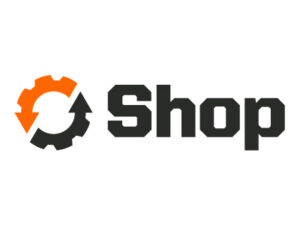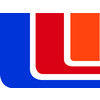We’ve all been there—eyeing that shiny new piece of machinery that promises to revolutionize your business, only to be met with a price tag that sends shivers down your spine. But what if I told you there’s a way to get top-notch equipment without emptying your wallet? Enter the world of equipment auctions. For small business owners, fleet managers, and startups alike, attending equipment auctions can offer a treasure trove of savings and opportunities. In this blog post, we’ll explore why equipment auctions are worth considering and how they can benefit your business in the long run.
Why Equipment Auctions Are a Smart Choice
Cost Savings Galore
One of the most compelling reasons to attend equipment auctions is the potential for substantial cost savings. Unlike traditional retail purchases, auction prices are often significantly lower. This can be a game-changer for small businesses and startups operating on tight budgets. Imagine acquiring a high-quality excavator or forklift for a fraction of its retail price. That’s money saved that can be reinvested into other critical areas of your business.
Access to High-Quality Equipment
Contrary to popular belief, auctioned equipment isn’t always old or worn out. Many items put up for auction are in excellent condition, sometimes even brand new. Companies may liquidate assets for various reasons, including upgrading their fleets or closing operations. This means you can often find top-of-the-line machinery and tools just waiting to be snapped up by savvy bidders like you.
Variety and Selection
Equipment auctions offer a wide range of items, from heavy machinery to specialized tools, office furniture, and even vehicles. This variety allows you to source multiple pieces of equipment in one go, saving you both time and effort. Whether you need construction machinery, agricultural tools, or office fixtures, chances are you’ll find them all under one roof at an auction.
How Auctions Work
The Auction Process
Understanding the auction process is key to making informed bids. Typically, auctions start with a preview period, allowing potential buyers to inspect the items up for bid. This is followed by the actual auction, where items are sold to the highest bidder. It’s essential to familiarize yourself with the auction’s rules and procedures beforehand to ensure a smooth experience.
Online vs. In-Person Auctions
With technological advancements, many auctions now offer online bidding options. This opens up a world of possibilities, allowing you to participate in auctions from the comfort of your office or home. While online auctions offer convenience, attending in-person auctions can provide a better feel for the items and the competitive landscape.
Tips for Successful Bidding
To make the most of your auction experience, keep these tips in mind:
- Set a budget and stick to it.
- Research the items you’re interested in beforehand.
- Inspect equipment during the preview period.
- Start with smaller bids to gauge the competition.
- Don’t get caught up in bidding wars—know when to walk away.
Benefits Beyond Cost Savings
Networking Opportunities
Attending equipment auctions isn’t just about buying machinery; it’s also a great networking opportunity. Auctions attract a diverse crowd of industry professionals, from fellow business owners to suppliers and contractors. Engaging with these individuals can lead to valuable connections and potential partnerships.
Educational Experience
For those new to the industry or unfamiliar with certain types of equipment, auctions can serve as an educational experience. Observing the bidding process, examining various items, and speaking with more experienced attendees can provide valuable insights and knowledge that you can apply to your business operations.
Environmental Benefits
Purchasing used equipment from auctions is also an eco-friendly choice. By giving a second life to pre-owned machinery, you’re contributing to resource conservation and waste reduction. This aligns with sustainable business practices and can enhance your company’s reputation as an environmentally conscious organization.
Potential Drawbacks and How to Mitigate Them
Risk of Hidden Issues
One downside of auction purchases is the potential for hidden issues or defects. However, this risk can be mitigated by thoroughly inspecting items during the preview period and requesting maintenance records if available. Additionally, some auctions offer limited warranties or return policies, so be sure to inquire about these options.
Competition and Bidding Wars
While auctions can offer great deals, they can also become competitive, driving prices higher than anticipated. To avoid overpaying, set a clear budget and be prepared to walk away if bidding exceeds your limit. Remember, there will always be more auctions and more opportunities.
Limited Availability of Specific Items
Auctions may not always have the exact item you’re looking for. To increase your chances of finding what you need, monitor multiple auction houses and online platforms. Subscribing to auction alerts can also keep you informed about upcoming sales that match your requirements.
The Long-Term Financial Impact
Lower Depreciation Rates
Used equipment typically experiences lower depreciation rates compared to new items. This means that the value of your auction purchases is likely to hold steady over time, providing better return on investment. In the event you decide to resell the equipment, you may recoup a significant portion of your initial expenditure.
Enhanced Cash Flow
Saving money on equipment purchases frees up capital that can be allocated to other areas of your business. Improved cash flow can support expansion efforts, marketing campaigns, employee training, and other initiatives that drive growth and profitability.
Tax Benefits
In some cases, purchasing used equipment can offer tax advantages. Depending on your jurisdiction, you may be eligible for tax deductions or credits related to equipment depreciation and capital expenditures. Consult with a tax professional to explore potential savings.
Making the Most of Your Auction Experience
Plan and Prepare
Preparation is key to a successful auction experience. Start by identifying your equipment needs and setting a clear budget. Research upcoming auctions and create a list of items you’re interested in. Arrive early to the auction to inspect items and get a feel for the competition.
Leverage Technology
Take advantage of online auction platforms and mobile apps to streamline the bidding process. These tools often provide real-time updates, bidding histories, and detailed item descriptions, making it easier to make informed decisions.
Build Relationships with Auction Houses
Establishing a rapport with auctioneers and auction house staff can provide you with insider information and early access to premium items. Regular participation in auctions can also lead to preferential treatment and exclusive offers.
Equipment auctions offer a unique and cost-effective solution for small business owners, fleet managers, and startups seeking high-quality machinery and tools. By understanding the auction process, setting clear goals, and leveraging available resources, you can unlock significant savings and enhance your business operations.





























